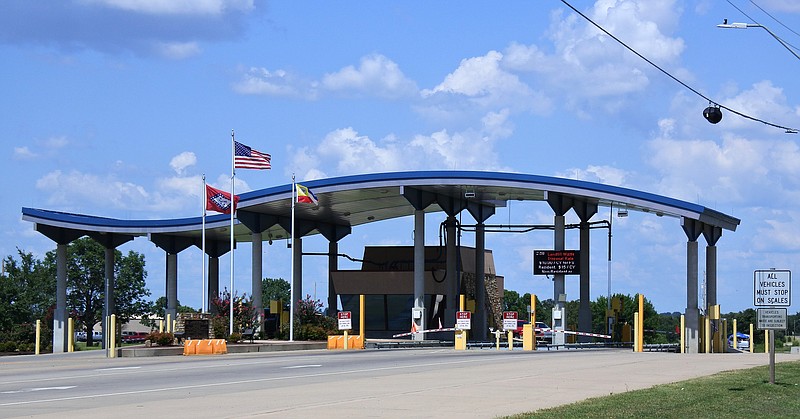FORT SMITH -- A circuit judge Wednesday ordered the city to pay $745,057 in restitution, noting the city purposefully deceived the public about its recycling program.
The city even sent recycling trucks around on trash day to collect the items but took them to the landfill for years, Sebastian County Circuit Judge Stephen Tabor noted.
Tabor ruled the city misused customer money from the Sanitation Department from July 2015 until May 2017.
"It is disconcerting to see the city dismiss the consequences of its actions on its citizens so cavalierly," the judgment reads. "It is perhaps what is most concerning about this entire matter because it leads to a concern that the city genuinely believes it has the right to deceive the public when it suits its purposes. A lack of recognition or remorse leads to fears that such behavior may be repeated in the future."
"We are pleased and thankful for the outcome," said Monzer Mansour, one of the attorneys who represented the plaintiffs. "The case was thoughtfully and correctly decided. The court's decision affirms the public's right to honest government."
Resident Jennifer Merriott filed the lawsuit against the city, seeking to recover money from its recycling program. She contended the city was guilty of illegal exaction and unjust enrichment because the city charged a roughly $13-a-month fee for recycling but disposed of recyclables in the landfill.
Tabor heard arguments in June.
The city's contract with Green Source Recycling of Clarksville ended in 2016.
In a court filing June 24, the plaintiffs argued that by the city's own estimates more than 95% of residential recyclables went to a landfill while the city encouraged residential customers to continue their recycling efforts. The filing said the city didn't inform customers recyclables were being taken to a landfill.
The lawsuit argued that, since the money was wrongly appropriated, customers deserve compensation for the period when recycling efforts were paused.
City Administrator Carl Geffken said when he was hired six years ago, one of his main goals was to fix the problem, but finding another recycling firm took longer than anticipated.
"Now, for slightly more than five years, 100% of all recyclable material collected by the Fort Smith Solid Waste Department have been processed by our recycling firm," Geffken said.
The city argued in court documents the revenue from recycling fees went toward current and future sanitation expenses, and straining personnel with added work would have led to a higher monthly fee anyway.
Tabor's judgement says the city purposefully deceived the public and the lack of honesty must be acknowledged. The restitution cost is based on rear loader operating costs and labor costs during the two-year time frame.
"Evidence demonstrating the city's overt efforts to deceive its citizens was also clearly on display at trial," the judgment states. "The named plaintiff testified -- and city employees confirmed -- that both a recycling truck and a side loader visited the same houses on the same day with the recycling trucks bearing messages about their purpose, picking up recycling containers and the side loaders picking up other waste."
Tabor noted the city had numerous ways to communicate to sanitation customers that recycling had been halted. He said none was used, and evidence demonstrates the lack of communication was intentional.
A statement from the city said it believes the court has erred in its findings and that city administration and the city attorney strongly recommend appealing the decision.
"Tax monies, not fees charged for services, must be the issue in a public funds type of illegal exaction," the statement said. "It is undisputed that the funds at issue in this case were sanitation fees and not taxes. Further, there is no precedent supporting the court's application of an illegal-tax analysis to a public funds case. As to the unjust enrichment claim, the undisputed evidence at trial was that the usage of the rear loaders to collect/transport the recycling was more cost efficient than using the automated trucks for that function."
"Put another way, there was no evidence that the City would have spent less money in collecting the recycling had it done so in a different manner. As such, we maintain there was no evidence that the City was unjustly enriched."
Geffken said if the appeal is denied, the funds would be paid from the Sanitation Enterprise fund. He said the class representative, which is the plaintiff, is responsible for deciding how the funds will be distributed after payment of their legal fees.
